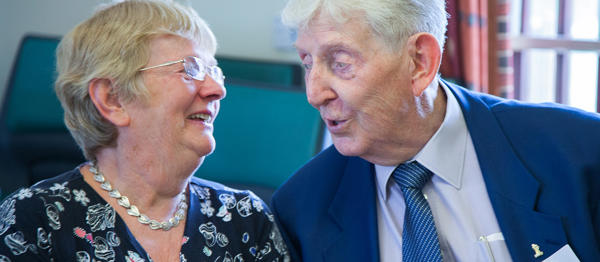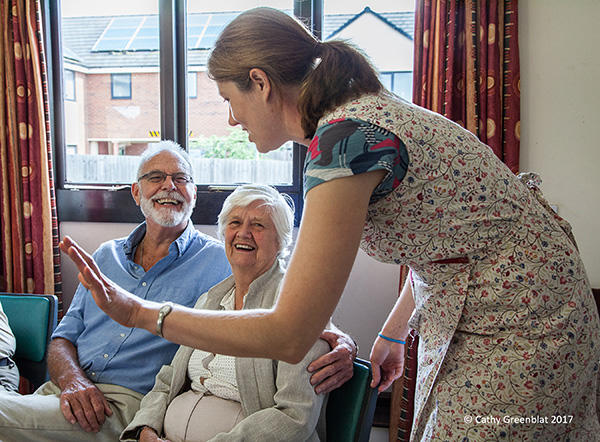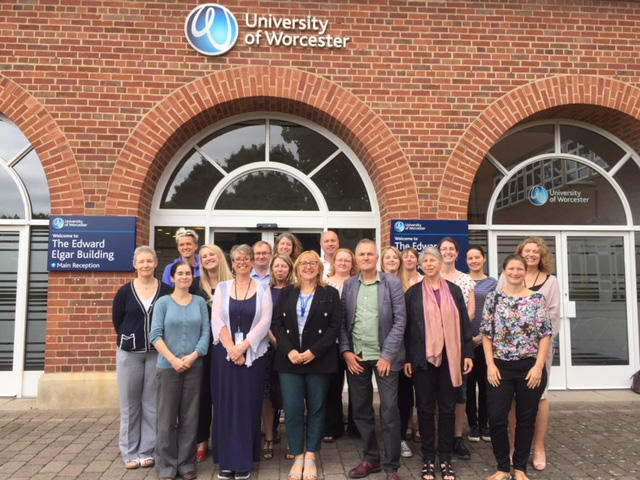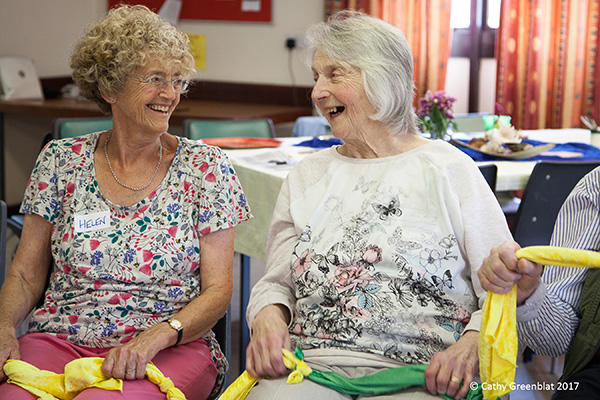In the UK the number of people living with dementia is estimated to be 850,000, and this is forecast to increase to over a million by 2021.

Globally the forecast rises to a staggering 135 million people across the world predicted to be living with dementia by the middle of the century. Dementia costs the UK economy £23 billion per year, which is nearly double the cost of cancer, stroke and heart disease combined.
Ten years ago, the University of Worcester established the Association for Dementia Studies to help meet these challenges, and to enable people living with dementia, and their carers, to live better lives. The Association began in 2009 with a single staff appointment, Professor Dawn Brooker. Since that time, under Professor Brooker’s leadership, the Association for Dementia Studies has flourished. Today, it is home to 20 multi-professional staff, a growing cohort of doctoral students, six honorary posts, and a steady stream of international visiting scholars. All of them are engaged in undertaking cutting edge research on how to deliver better care.
A decade on, here are 10 of the Association’s most significant achievements.
1. Bringing people together
The Association for Dementia Studies is a multi-professional group, bringing together expertise from the fields of psychology, nursing, social work, gerontology, occupational therapy, policy analysis, medicine, primary care and psychiatry, with the experience of those living with dementia, their families and their carers, in to one finely woven and richly textured conversation. All share a common passion to change the world for the better for those who are living with dementia today and into the future.

2. Nothing about us without us
People living with dementia and their families are often marginalised within society. The disability rights movement that advocates “nothing about us, without us” has been much slower to materialise in the dementia field compared to other disabilities. The Association has advocated for the rights of people living with dementia since its inception. The voices of those living with dementia, their families, and their care partners, are central to every element of the Association’s work, ensuring that their work remains firmly anchored in the experiences of the people it serves. This person-centred approach permeates all of the activities of the Association for Dementia Studies.
3. No Us and Them
Many organisations focus on research, policy, or education, but the Association for Dementia Studies at Worcester is unique in integrating all of these diverse perspectives and more. The Association works at the interface between the lived experience of those whose lives are directly affected by dementia – both individuals and their carers, those responsible for developing and delivering care, and those undertaking research, to ensure that these different groups remain connected and work collaboratively towards a unified goal.
4. Spreading the word
The Association for Dementia Studies is well aware that sharing knowledge and expertise is essential in order to turn good research in to excellent practice that genuinely improves the lives of people on the ground, but also appreciates that this is a two-way street, a conversation, not a monologue.
Since 2009 the Association has published well over 100 pieces of original research in to dementia care, written and contributed to more than 40 books on the subject, and presented work at over 450 conferences worldwide.
5. Providing skilled care

Many professionals receive very little training in how to implement best practice. The Association has worked alongside national training bodies to improve this situation, contributing many accessible resources for staff working in the field.
Over the years, they have provided dementia care education programmes to more than 5,600 health, care and housing professionals from across the UK; worked directly with 55 care providers to improve their dementia care; and hosted 30 free events on dementia for both professionals and the public.
Later this year, the Association will launch a new Distance Learning Post-graduate programme in Person-Centred Dementia Care, opening up the opportunity for a new generation of professionals from across the world to develop the leadership skills to play their part in shaping the future.
6. The right to a timely diagnosis
Ten years ago the national diagnosis rate for dementia was around 40% and people were being diagnosed late on in the disease process. The Association for Dementia Studies has worked with the Department of Health to develop guidance on the best time for people to have a diagnosis and how this should be communicated.
The Association advised that people had the right to a timely and accurate diagnosis, communicated sensitively, and at a time when they and their families could understand the implications of the diagnosis and make lifestyle changes to accommodate it.
In 2019 the national average diagnosis rate is 70% with a national network of easy to access memory assessment services, and the right to a timely diagnosis is now enshrined in national dementia strategies world-wide.

7. How to make friends and...
Diagnosis at an earlier stage means that there is an opportunity to ensure people and families make the best adjustments to living with dementia in the longer term. Meeting Centres offer expert advice, social engagement and a vital point of contact. At the heart of every Meeting Centre is a social club where people can meet to have fun, talk to others, and get the help and support they need.
Meeting Centres were originally developed in the Netherlands, and Professor Brooker’s team were part of a large European research programme to evaluate this innovation in the UK, Italy and Poland. The research showed that Meeting Centres significantly improve self-esteem, levels of happiness, and a sense of belonging, as well as reducing some of the most distressing symptoms of dementia, and providing an invaluable source of support for family carers.
In 2018 the Association secured funding from the National Community Fund to create a network of Meeting Centres across the UK. The team are now on their way to the target of 20 new Meeting Centres over the next 3 years.
8. Supporting people at later stages of dementia
The Association for Dementia Studies has worked continuously with care homes and hospitals to research and develop care for people with more advanced dementia and complex needs. All too often people are prescribed sedating medication that have serious side effects and rob people of their quality of life. Research and education programmes pioneered by the Association and its partners have shown dramatic reductions in the prescriptions of sedatives by supporting staff to deliver person-centred care.
9. Innovation that really works
The Association has launched a range of collaborative projects to explore the role that the creative arts, nature and sport can play in enriching the lives of those affected by dementia. Whilst many people use music, art, movement, sport and the enjoyment of nature to enrich their lives, the Association for Dementia Studies has been building research in this area, testing each concept rigorously, and creating an invaluable evidence base that will help identify which approaches are most effective, and why.
10. Going Global
Dementia is a challenge world-wide and by 2040 71% of people living with dementia will be from low and middle income countries. The Association for Dementia Studies is part of the global network of person centred dementia care, and a key player in international attempts to transform care for people affected by dementia. They regularly work with colleagues from Japan, Australia, USA, Canada, South Africa, Singapore, Netherlands, Germany, Denmark, Norway, Spain, Portugal, Belgium and Italy. Professor Brooker’s books have been translated into eight languages in the past 10 years, and a recent successful PhD student from the Association for Dementia Studies now works at the prestigious Global Observatory on Dementia at the World Health Organisation.